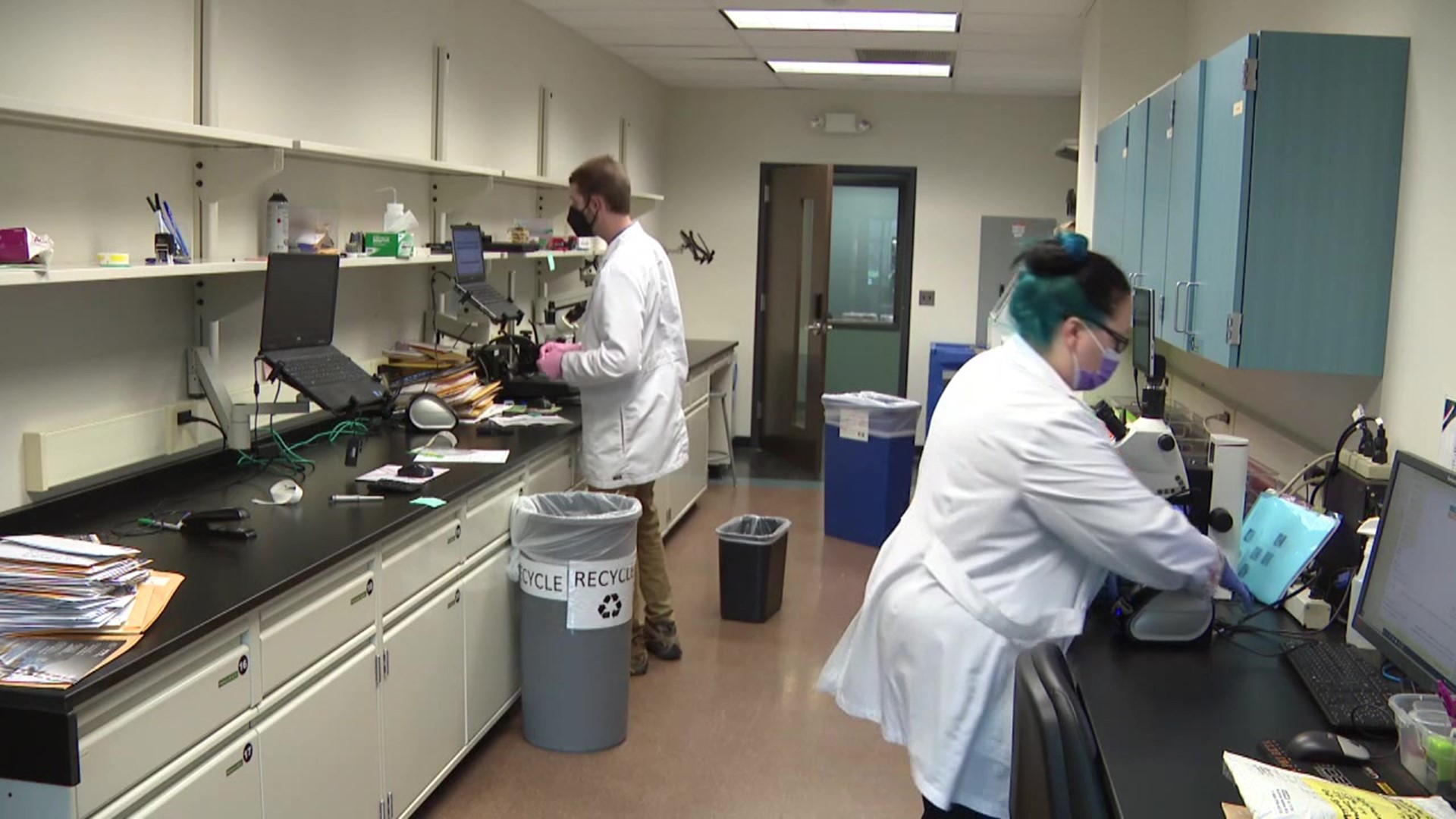MONROE COUNTY, Pa. — As we head into tick season, Lyme disease isn't the only tick disease to worry about.
According to a recent report by the CDC, another tick-borne illness is on the rise in the northeast.
The people hiking the trails at Brodhead Creek Park in Stroud Township know they're not alone when outdoors. Hard-to-see pests are lurking this time of year — ticks.
And they are top of mind for many at the park.
"You have to be concerned. You know you have to watch out where you step. I'm always careful. I come out with my kids all the time, and you just got to watch out. You don't want to get sick," said Jose Ramiez of East Stroudsburg.
"When I'm walking, I don't think about it because I'm saying on the trails. Now, if I go into the field down there, then I'll be concerned," said Debbie Miller from Marshalls Creek.
Nicole Chinnici, the lab director of the East Stroudsburg University Tick Research Lab in Smithfield Township, says tick season hasn't slowed down, partly due to a lack of cold, snowy weather.
"Our February tick bites were actually up 300 percent in comparison to previous years. A lot of people think in wintertime, ticks go away, but they don't if temperatures are still above freezing," said Chinnici.
If you find a tick on yourself or in your backyard, you can drop it off at ESU's tick lab to have it identified and tested for free.
For research and to reduce the tick population, scientists have been out in the field collecting samples from small mammals that carry ticks. What they found is another tick-borne illness that can be transferred to humans called Babesiosis.
"It's very similar to malaria, like an infection," Chinnici said. "It infects our red blood cells."
Because of free tick testing the state offers, Chinnici says they're finding between 6 to 8 percent of ticks are carriers of Babesiosis.
"Pennsylvania leads the state in Lyme disease cases, but we do not report Babesiosis cases. So, the impact on our human population is really unknown in our state, but in other areas that do report it, they have seen increases in cases. If it's an increase in the tick population, we haven't seen too much of a sporadic increase in terms of our infection rates in ticks," Chinnici said.
For tips on how to prevent tick bites, click here.
To submit your tick for testing, click here.

